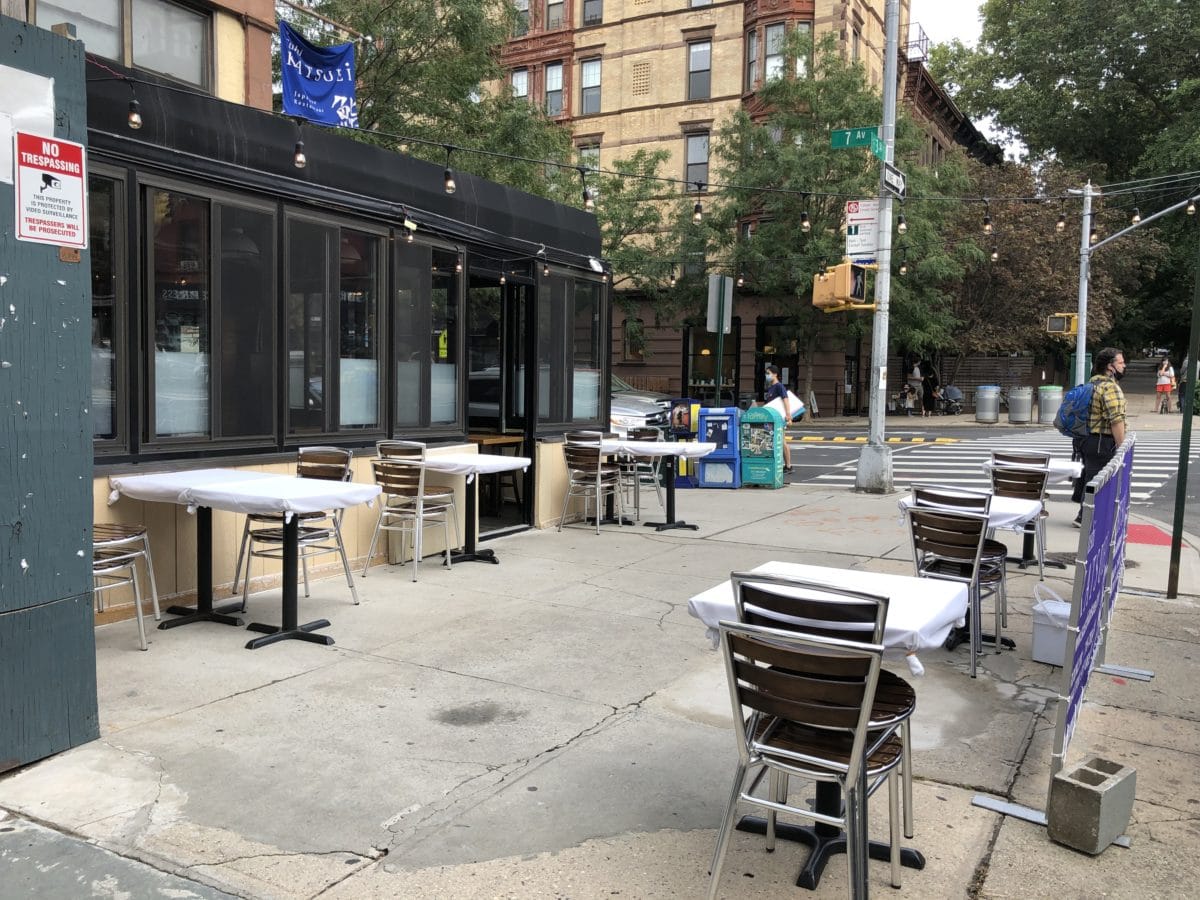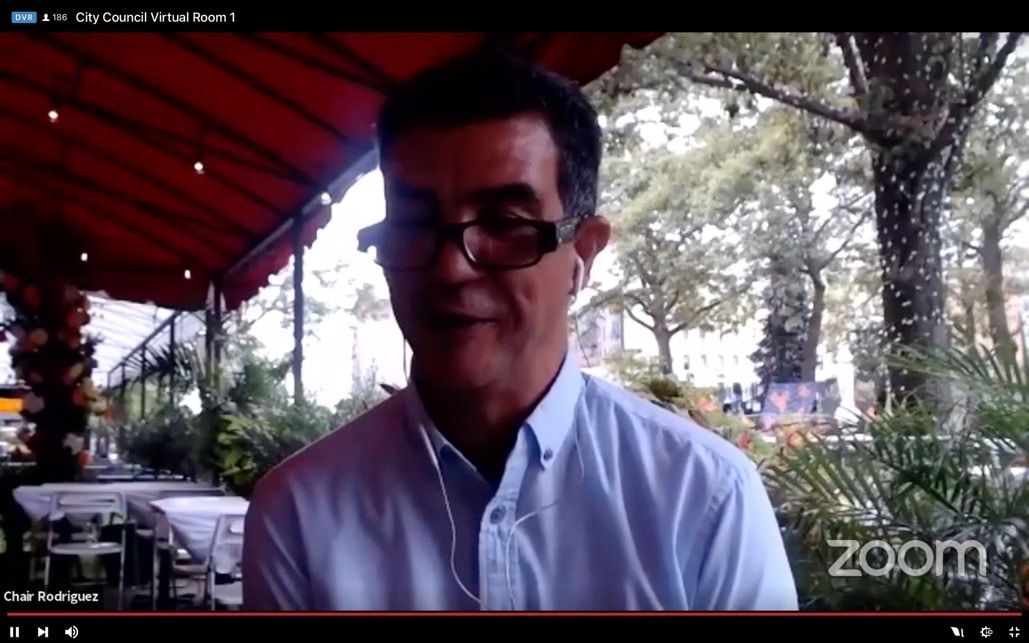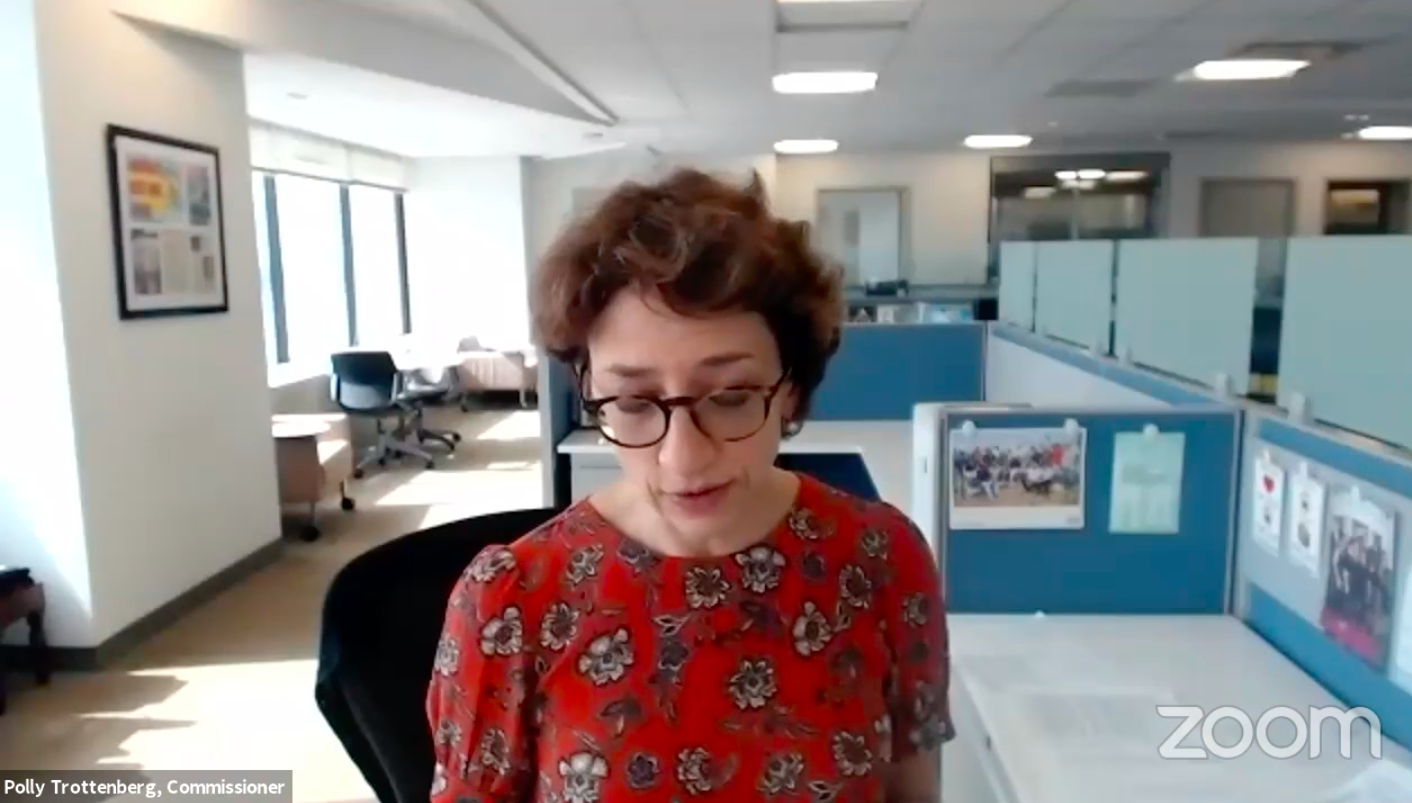Garbage, Open Dining, and Private Streets Dominate Transportation Committee Hearing


Members of the City Council’s Transportation Committee voiced their concerns with the Department of Transportation (DOT) Commissioner Polly Trottenberg in a hearing Wednesday over the department’s response to COVID-19 and the Open Streets Program.
The Open Streets Program was implemented to provide additional space for social distancing in the city during the COVID-19 crisis after much public pressure back in late March from the Governor, and members of the city council.
Mayor de Blasio first announced the group of streets to open to pedestrians on May 2, and just over seven miles across all five boroughs opened on May 4. Trottenberg informed yesterday that the program is the largest open streets program in the country with over 75 miles of streets citywide.
“Our Play Streets initiative provided families with safe structured activities on 14 open streets and neighborhoods most impacted by COVID-19,” Trottenberg said. “We also designated 16 open streets in the most heat-burdened communities as cool streets.”
The issues raised at the hearing ranged from concerns over littered streets and outdoor dining during cold weather, to repaving private streets.
Littered Streets
Trash on sidewalks throughout the city in low-come areas was brought up with hopes that the DOT could focus its resources on improving it.
Chairman Ydanis Rodriguez voiced concern about trash building up for days in low-income communities because they are not being focused on. As he sat at an outside dining spot, he moved his camera around to show off the need for the program and cleanliness.

The Department of Sanitation has lost over $100 million in its operating budget, causing weekly trash pickups to be delayed among other cuts, further adding to the build up Chairman Rodriguez is worried about. City’s Sanitation Commissioner Kathryn Garcia resigned on Tuesday, writing in her resignation letter that “At a time when protecting public health is of the essence, cutting basic Sanitation services is unconscionable.”
Trottenberg said the DOT is working on an “attractive garbage collection system” that would be in the street and not on the sidewalks. The “Clean Curbs” program would let private entities apply for sealed, on-street containers for their trash, potentially removing trash from city sidewalks.
Open Restaurants
The worry of what is going to happen to the restaurant industry was a common theme during the hearing. As summer shifts to fall, council members wondered how restaurants will stay in business.
Council members Fernando Cabrera, Antonio Reynoso, and Peter A. Koo brought up issues with outdoor dining, fearing the loss of millions of dollars during the cold season. Koo said the neighborhood of Flushing needs help setting up secure outdoor spaces for businesses that can only do takeout.
“I think we need to finally allow people to go inside,” Cabrera said. “… Because realistically, we’re not going to be out there in the freezing cold. Trying to have a nice meal, basically, in the evening. It just isn’t realistic.”
Trottenberg said the mayor was “looking into it,” during the hearing. Soon after the hearing ended, Governor Andrew Cuomo announced that indoor dining in the city is allowed at 25% capacity and subject to additional restrictions starting Sept. 30.
The Open Restaurants program was launched on June 22, when the city went into phase two, to help the industry hard hit by the pandemic restrictions to remain in business. Restaurants could set up outdoor dining along the sidewalks and curbs fronting their establishments and where located on Open Streets – take additional space in the street. Today, over 10,000 restaurants have applied to take advantage of the program and serve customers outdoors.
“We make that a reality that the business owners in this area, the pedestrian, the cyclist, they’ve been enjoying the benefit of open streets,” Chairman Rodriguez said. “…This unusual situation became the perfect opportunity to implement important and creative measures to ensure that people have adequate space for exercising and enjoying the outdoors. All while social distancing.”
Private Streets
Discussion of private streets being regulated in Staten Island prompted council members to ask the commissioner why private streets in the city can’t be fixed as well.
Councilmembers Andrew Cohen and Robert F. Holden made firm complaints about private roads in the city that need repair and requests to do so have been ignored.
“You know, I, my office somehow even though everybody’s working virtually like I wrote you a letter in June of 2019, about private street status,” Cohen said. “And you sent me a letter back in November of 2019. With a lovely little handwritten note that you’re trying to solve this, but there’s been no progress and it didn’t sound to me and your answers to you.”
Trottenberg stressed the point that many of the concerns brought up during the hearing had to do with budget issues.

The DOT budget has been cut by 12%, totaling $1.1 billion, Trottenberg said, adding that additional budget cuts are to be expected, “particularly if the federal government does not give the city additional stimulus funding.”
Commissioner also noted that 750 school zones have activated speed cameras ahead of the school year. The city saw a dramatic increase in speeding during the PAUSE in the spring. J Street in Brooklyn got a busway, the Bronx got new bus lanes, there are stationary cameras along nine new bus corridors and MTA buses have cameras on three new Manhattan routes.
“COVID-19 has transformed our city in ways that were unimaginable only six months ago,” Trottenberg said in her testimony. “I’m proud of the work that the men and women of DOT have done to meet the changing needs of New Yorkers and the many demands on our streets.”




